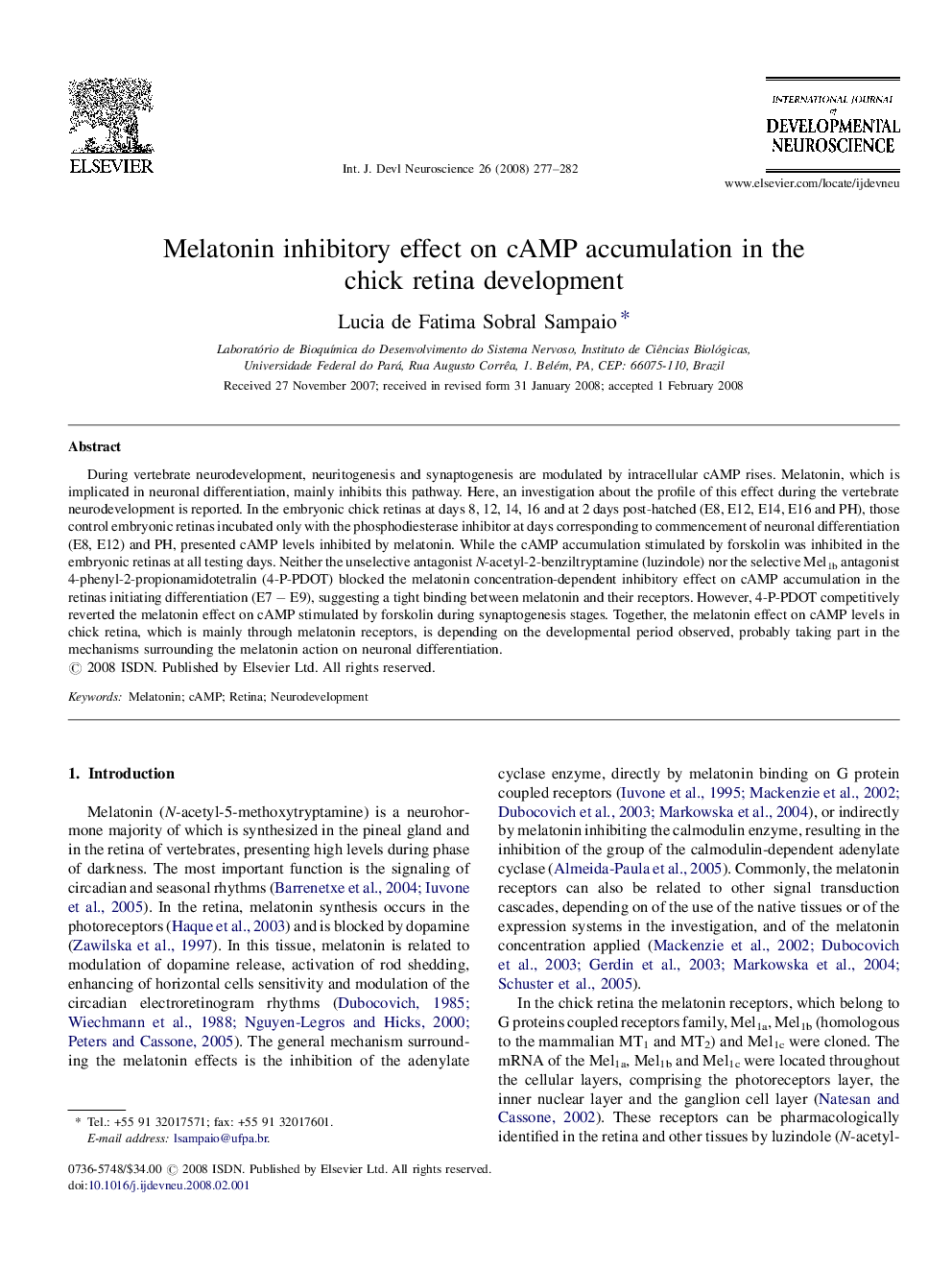| Article ID | Journal | Published Year | Pages | File Type |
|---|---|---|---|---|
| 2787041 | International Journal of Developmental Neuroscience | 2008 | 6 Pages |
Abstract
During vertebrate neurodevelopment, neuritogenesis and synaptogenesis are modulated by intracellular cAMP rises. Melatonin, which is implicated in neuronal differentiation, mainly inhibits this pathway. Here, an investigation about the profile of this effect during the vertebrate neurodevelopment is reported. In the embryonic chick retinas at days 8, 12, 14, 16 and at 2 days post-hatched (E8, E12, E14, E16 and PH), those control embryonic retinas incubated only with the phosphodiesterase inhibitor at days corresponding to commencement of neuronal differentiation (E8, E12) and PH, presented cAMP levels inhibited by melatonin. While the cAMP accumulation stimulated by forskolin was inhibited in the embryonic retinas at all testing days. Neither the unselective antagonist N-acetyl-2-benziltryptamine (luzindole) nor the selective Mel1b antagonist 4-phenyl-2-propionamidotetralin (4-P-PDOT) blocked the melatonin concentration-dependent inhibitory effect on cAMP accumulation in the retinas initiating differentiation (E7 â E9), suggesting a tight binding between melatonin and their receptors. However, 4-P-PDOT competitively reverted the melatonin effect on cAMP stimulated by forskolin during synaptogenesis stages. Together, the melatonin effect on cAMP levels in chick retina, which is mainly through melatonin receptors, is depending on the developmental period observed, probably taking part in the mechanisms surrounding the melatonin action on neuronal differentiation.
Keywords
Related Topics
Life Sciences
Biochemistry, Genetics and Molecular Biology
Developmental Biology
Authors
Lucia de Fatima Sobral Sampaio,
